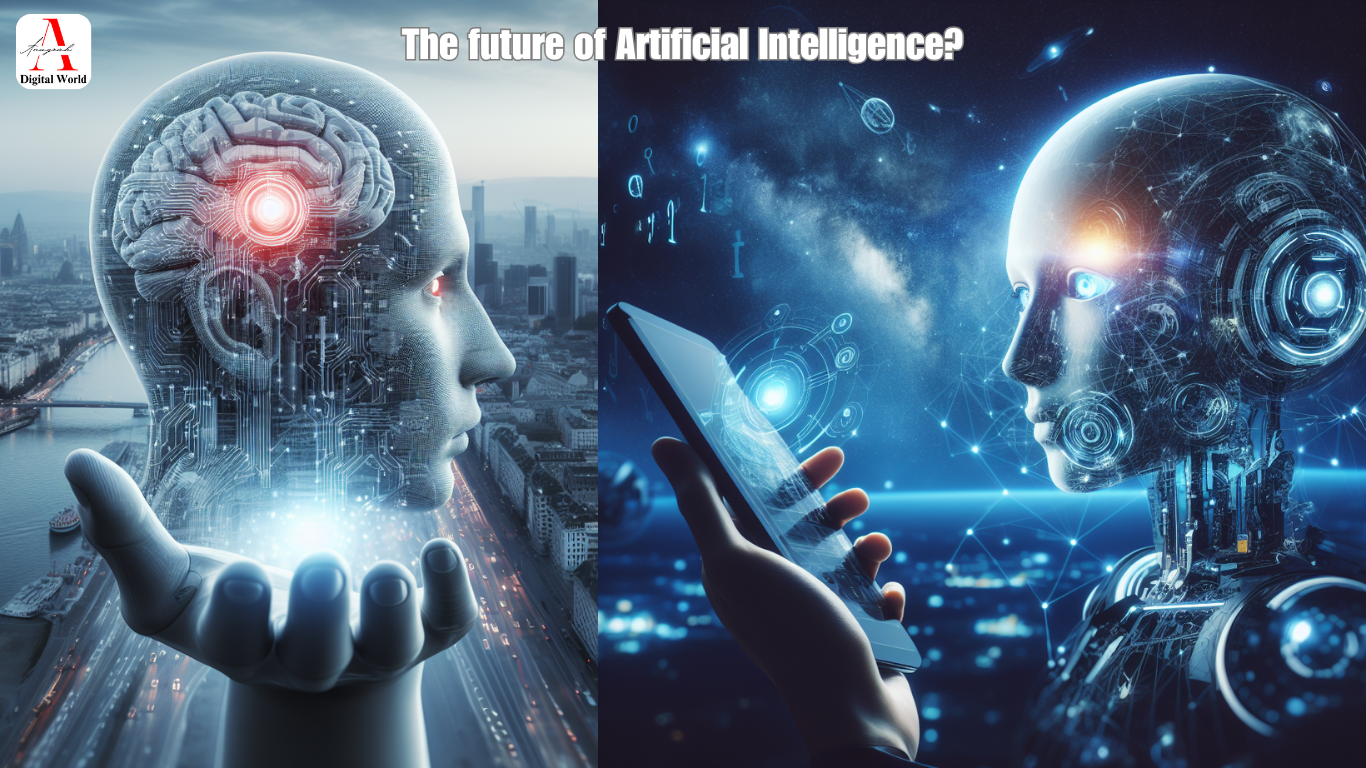The future of Artificial Intelligence
Predicting the future of Artificial Intelligence (AI) is a complex task, fraught with both exciting possibilities and potential challenges. While the exact nature of AI’s future remains uncertain, several key trends and predictions can shed light on its potential impact:

Increased Automation:
AI will continue to automate tasks across various industries, transforming the workforce and potentially displacing some jobs. However, it’s also expected to create new opportunities in areas like AI development, maintenance, and ethical oversight.
Enhanced Efficiency:
AI will streamline processes, optimize decision-making, and improve efficiency in various sectors, leading to increased productivity and economic growth.
Personalized Experiences:
AI will personalize experiences across various domains like healthcare, education, and entertainment, tailoring services and products to individual needs and preferences.
Advanced Robotics:
Collaborative robots and autonomous systems will become more sophisticated and integrated into various tasks, from manufacturing and logistics to healthcare and surgery.
Cognitive Enhancement:
AI may eventually be used to augment human intelligence, leading to improved memory, learning abilities, and problem-solving skills.
Ubiquitous AI:
AI will become increasingly embedded in everyday life, seamlessly integrated into our homes, cars, and personal devices. This raises questions about privacy, security, and the potential for bias and discrimination.
Ethical Considerations:
As AI becomes more powerful, ethical concerns surrounding its development and use will become paramount. Bias, transparency, accountability, and safety will be crucial aspects of responsible AI development.
General AI:
While still distant, the potential for General AI (AGI) capable of human-level intelligence remains a long-term goal of AI research. AGI’s impact on society is difficult to predict, but it could lead to significant advancements in various fields while raising profound ethical and existential questions.
Regulation and Governance:
As AI becomes more pervasive, effective regulation and governance frameworks will be necessary to mitigate risks and ensure its beneficial development for society.
International Collaboration:
Global collaboration and cooperation will be crucial in addressing the challenges and opportunities presented by AI, ensuring equitable access and responsible development for all nations.
Overall, the future of AI presents a mix of opportunities and challenges. While its vast potential for improving our lives is undeniable, responsible development and ethical considerations are paramount to ensuring AI serves humanity’s best interests.

